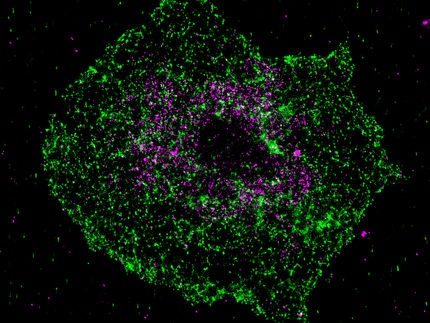Insights into the effects of zinc deficiency
Advertisement
According to new research a drop in blood zinc levels does not directly harm the blood vessel cells. Rather, zinc regulates the production of a small molecular compound, which then circulates in the blood and causes harmful blood vessel cell effects. Additionally, not only will having adequate amounts of zinc prevent the creation of this compound, but it can protect you when the compound is circulating in your blood.
"Zinc deficiency afflicts two billion people worldwide and our study has revealed a zinc-regulated small compound in blood that mediates the harmful effects of zinc deprivation," said John H. Beattie, Ph.D., a researcher involved in the work from the Rowett Institute of Nutrition and Health at the University of Aberdeen in Aberdeen, U.K. "Measurement of this compound in blood may prove very valuable, not only in assessing, for example, the risk of developing heart attack or stroke, but also as a diagnostic test for zinc status."
To make this discovery, Beattie and colleagues cultured cells from rat blood vessels and exposed them for 24 hours to the blood plasma from rats that had been given food low or adequate in zinc. Then they examined the gene expression profile to identify which genes changed when exposed to blood plasma from low zinc rats. Dramatic changes in some gene activities were found when comparing blood plasma treatments from low and adequate zinc rats. Then the scientists removed the zinc from the zinc-adequate blood plasma and saw that it had no effect on gene activity, suggesting that that there was a harmful compound produced in response to zinc deficiency and that its effects on blood vessel cells is abolished by zinc.
"Most people might think of zinc as a kind of food supplement," said Gerald Weissmann, M.D., Editor-in-Chief of The FASEB Journal, "but zinc deficiency is a serious matter. Understanding how zinc deficiency affects the body is important, not just because it can help us how to treat this deficiency, but also because it presents a new way to detect low zinc in the body that is faster and easier than current methods."























































